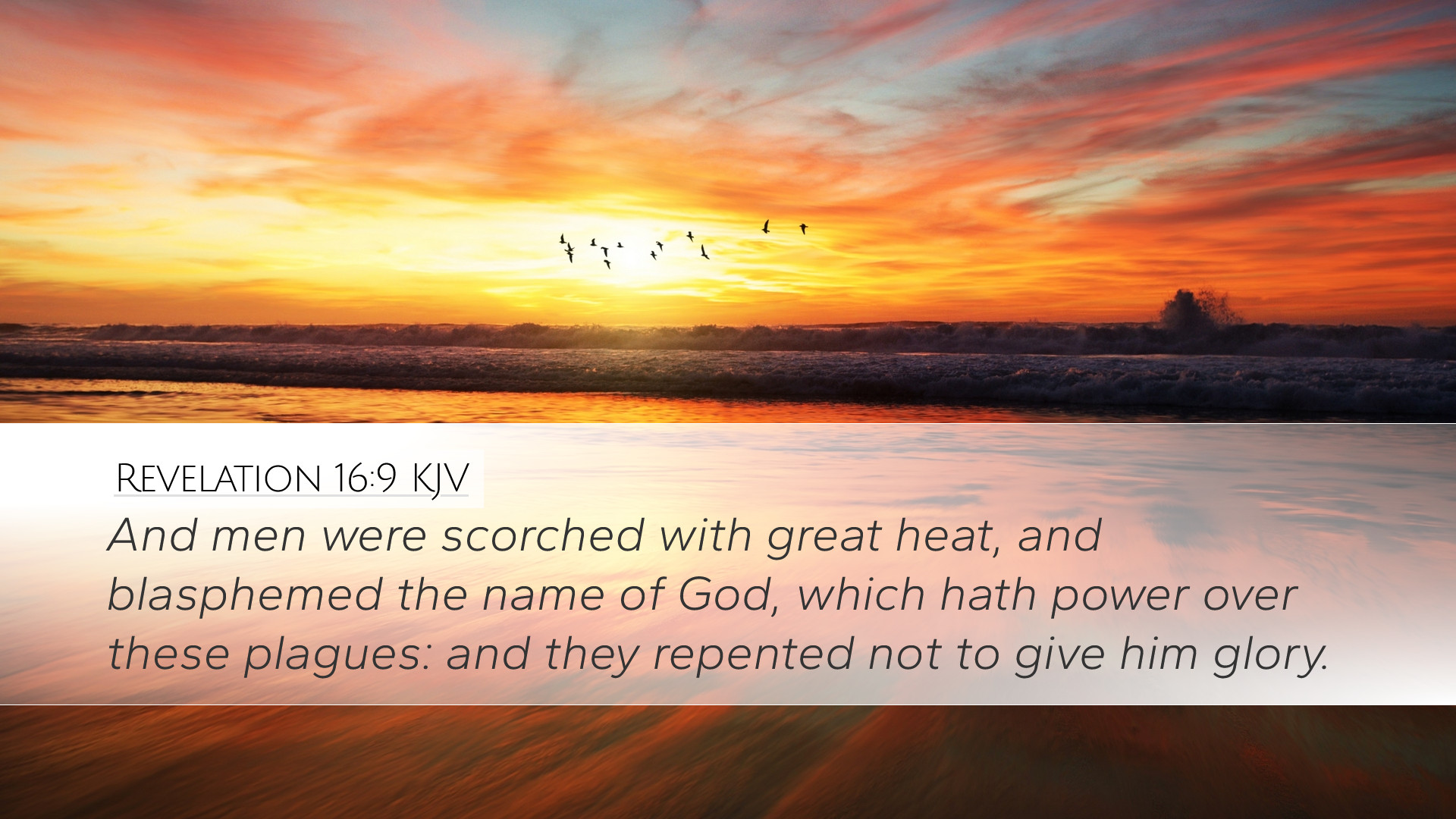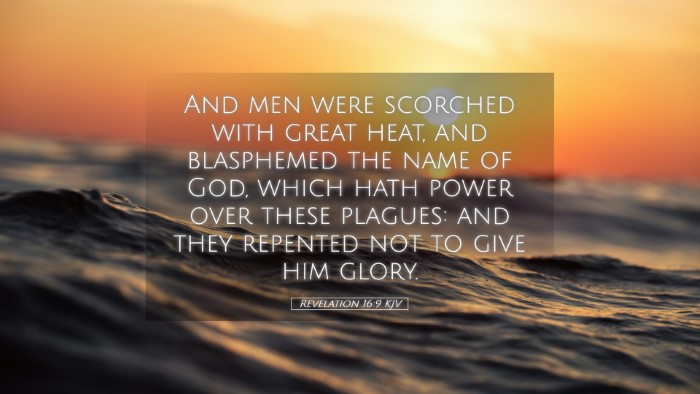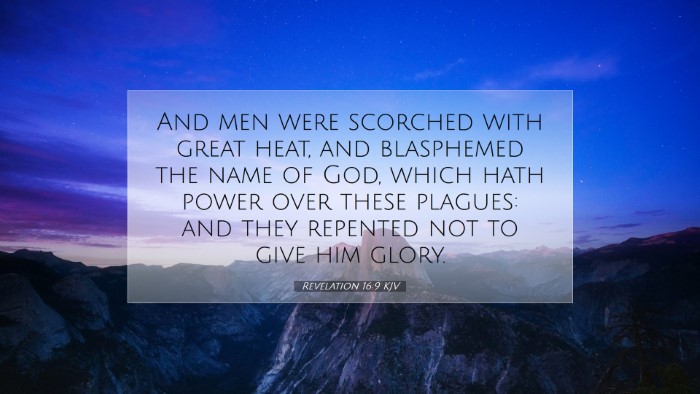Commentary on Revelation 16:9
Text of Revelation 16:9 (ESV): "They were scorched by the fierce heat, and they cursed the name of God who had power over these plagues. They did not repent and give him glory."
Overview
This verse finds itself amidst a series of divine judgments described in the Book of Revelation, focusing on the hardened hearts of humanity in response to God's sovereignty and the afflictions they endure. This commentary integrates insights from renowned public domain scholars, emphasizing the theological, historical, and practical implications of this passage.
The Context of Judgments
The context of Revelation 16 involves the pouring out of the seven bowls of God's wrath. Each bowl represents a successive judgment that aims to reveal God's holiness and the severity of sin. This particular verse highlights the divine response to human sinfulness amid intense suffering.
1. The Nature of the Judgment
Matthew Henry describes the scene as a period where severe plagues cause intense suffering. Henry notes how the “fierce heat” symbolizes not only physical torment but also the spiritual desolation faced by those who refuse to acknowledge God's authority. He emphasizes that the nature of these plagues serves as a clear indication of God's displeasure and justice addressed towards a rebellious world.
2. Human Response to Divine Plagues
Albert Barnes comments on the human response to these divine actions, indicating that instead of repenting and giving glory to God, the individuals involved respond with cursing and blasphemy. This reflects a tragic irony; rather than recognizing their sin and turning towards God, their hearts become more hardened. Barnes points out that this dreadful state exemplifies the culmination of human rebellion against the Creator, a recurring theme throughout Scripture.
3. The Role of Repentance
Adam Clarke elaborates on the vital theme of repentance in the midst of trials. Clarke notes that the expectation from God is for humankind to yield to His correction and seek reconciliation. The refusal to repent even during dire circumstances serves as a stark reminder of the depravity and obstinacy inherent in humanity. Clarke asserts that God's purpose behind these tribulations is to drive people to repentance, emphasizing that repentance is the gateway to restoration and communion with God.
Theological Implications
This verse presents significant theological themes worthy of exploration:
- The Sovereignty of God: The plagues illustrate God's supreme authority over creation and human affairs. The refusal to acknowledge His power leads to further judgment.
- Human Depravity: The unrepentant heart is a central theme in biblical theology, indicating the profound depths of human sinfulness that resist divine truth and mercy.
- Judgment and Mercy: While God's judgment is evident, there remains a consistent call for mercy and repentance, showcasing the dual nature of His character as both judge and savior.
Practical Applications
For pastors, students, and scholars, the verse presents several practical applications:
- Encouragement to preach repentance: Just as the text reveals, preachers are encouraged to call their congregations to repentance, highlighting that acknowledgment of sin and a return to God is crucial in times of trial.
- Understanding the human condition: Recognizing the nature of human resistance to God can inform pastoral care and counseling approaches, allowing for a compassionate response to the hardened hearts.
- The urgency of evangelism: This text serves as a reminder of the urgency in sharing the gospel, particularly in recognizing that the time for repentance is limited.
Concluding Thoughts
Revelation 16:9 stands as a profound statement on the relationship between divine judgment and human response. The verse encapsulates the persistent call for repentance from a loving yet sovereign God amidst human rebellion. Through the insights of Matthew Henry, Albert Barnes, and Adam Clarke, we grasp a deeper understanding of this crucial moment in apocalyptic literature, encouraging faithful adherence to God's word and a continued call for acknowledgment of His glory.


